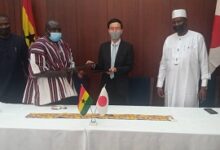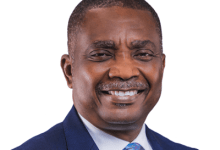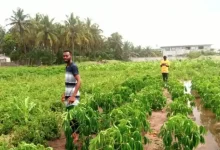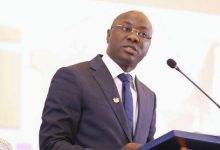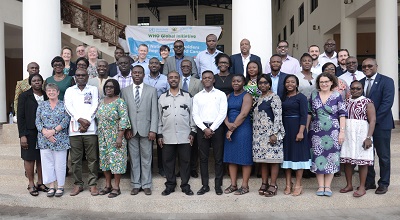
About 328 childhood cancer cases have been recorded at the Korle Bu and Komfo Anokye Teaching Hospitals in Accra and Kumasi respectively between January and October this year.
Of the number, Korle Bu Teaching Hospital (KBTH) accounts for almost 51 per cent of the cases, often diagnosed among children aged zero to 19 years.
Deputy Programme Manager of Non Communicable Diseases Control of the Ghana Health Service (GHS), Dr Efua Commeh, at a national stakeholder’s conference on childhood cancer in Accra yesterday, submitted that the country currently records between 1,000 and 1,300 children suffering from the disease each year.
On the average, she said, KBTH records approximately 170 new childhood cancer cases every year with Lymphoma, a condition that affects the immune system, being the leading cause of death among children.
Other conditions including Leukemia (16 per cent), Wilms (14 per cent) and Retinoblastoma (12.5 per cent) she mentioned, also increasingly took the lives of children suffering cancer in the country.
According to Dr Commeh, in the face of the huge number of childhood cancer cases, the country could boast of only six trained oncologists with radiotherapy and chemotherapy treatments available in only two centres (KBTH and KATH).
“Currently, we have about five health facilities providing pediatric oncology services. The specialty is being endangered because we do not even have nurses and doctors training in paediatrics and child health compared to other specialties.”
The Deputy Programme Manager called for increased advocacy on the disease asking parents to look out for early signs among children such as change in eye colour, swellings on parts of the body and persistent feverishness, among others.
To increase access and reduce cost of treatment to families, Dr Commeh appealed that steps are taken to decentralize service delivery and provide better social support systems to affected families.
“We need to strengthen our cancer surveillance system and research on childhood cancers in Ghana and possibly incentivize the training of specialists in the field,” she pleaded.
The Head of Q uality Management Unit of the Ministry of Health, Dr Ernest Asiedu who represented the sector Minister in a speech noted that, the selection of Ghana by the World Health Organisation (WHO) to implement the global initiative childhood cancer fits into the country’s aim to achieve universal health coverage (UHC).
“As a country, we have defined UHC as all people having timely access to high quality services irrespective of the ability to pay at the point of use and we will ensure that childhood cancers are not left behind,” he assured.
Dr Asiedu expressed the Ministry’s commitment to integrate childhood cancer care into “national strategies, health benefit package schemes to reduce the financial hazards to families affected.”
WHO Country Representative, Dr Neema Kimambo in a speech read on her behalf recognized that to achieve the Organisations goal of improving survival of at least 60 per cent of children suffering cancer, there was need to increase capacity of countries to provide quality services to patients and increase prioritization of childhood cancer at global and national levels.
BY ABIGAIL ANNOH

